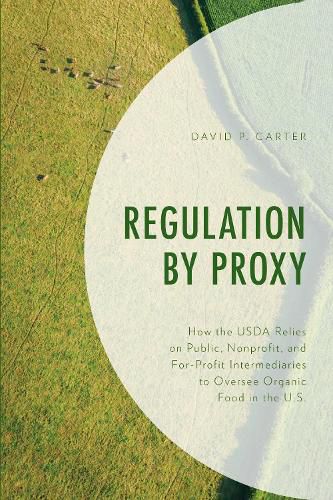Readings Newsletter
Become a Readings Member to make your shopping experience even easier.
Sign in or sign up for free!
You’re not far away from qualifying for FREE standard shipping within Australia
You’ve qualified for FREE standard shipping within Australia
The cart is loading…






Regulation by Proxy catalogues the intermediaries that are critical to organic certification, including the National Organic Standards Board, accredited certifying agents, organic inspectors, the California State Organic Program, the Accredited Certifiers Association, the International Organic Inspectors Association, and material review organizations. Drawing on a range of evidence, from original data to the work of prominent food policy authors, Carter assesses each intermediary’s contributions to organic standards development, administration, and enforcement. Carter’s analysis shows that there are undeniable benefits to how organic food is regulated in the U.S., however, relying on an assortment of intermediaries requires multifaceted oversight for which the USDA may not always have sufficient tools or capacity to realize.
$9.00 standard shipping within Australia
FREE standard shipping within Australia for orders over $100.00
Express & International shipping calculated at checkout
Regulation by Proxy catalogues the intermediaries that are critical to organic certification, including the National Organic Standards Board, accredited certifying agents, organic inspectors, the California State Organic Program, the Accredited Certifiers Association, the International Organic Inspectors Association, and material review organizations. Drawing on a range of evidence, from original data to the work of prominent food policy authors, Carter assesses each intermediary’s contributions to organic standards development, administration, and enforcement. Carter’s analysis shows that there are undeniable benefits to how organic food is regulated in the U.S., however, relying on an assortment of intermediaries requires multifaceted oversight for which the USDA may not always have sufficient tools or capacity to realize.